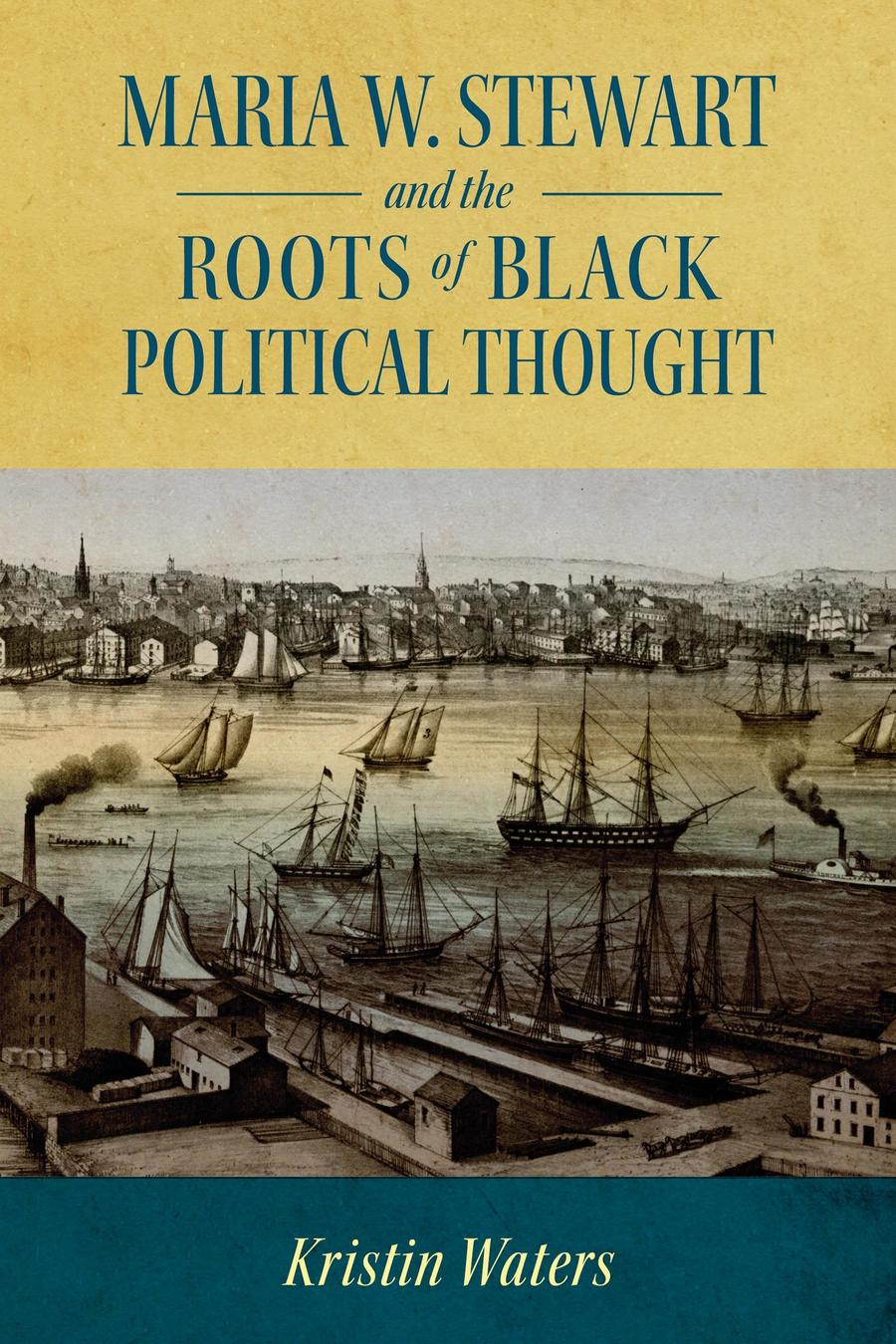Kristin Waters, Ph.D.

Author of Maria W. Stewart and the Roots of Black Political Thought
“Meticulously researched and powerfully argued, this book is mandatory reading for anyone interested in understanding the deep roots of Black feminist politics in the United States.” – Keisha N. Blain, co-editor of the No. 1 New York Times bestseller Four Hundred Souls and award-winning author of Until I Am Free: Fannie Lou Hamer’s Enduring Message to America
A biography of a trailblazer and a movement for abolition, gender equality, and social justice.
2022 Finalist for the Pauli Murray Book Prize in Black Intellectual History

Maria W. Stewart and the Roots of Black Political Thought tells a crucial, almost-forgotten story of African Americans of early nineteenth-century America. In 1833, Maria W. Stewart (1803–1879) told a gathering at the African Masonic Hall on Boston’s Beacon Hill: “African rights and liberty is a subject that ought to fire the breast of every free man of color in these United States. ” She exhorted her audience to embrace the idea that the founding principles of the nation must extend to people of color. Otherwise, those truths are merely the hypocritical expression of an ungodly white power, a travesty of original democratic ideals. Like her mentor, David Walker, Stewart illustrated the practical inconsistencies of classical liberalism as enacted in the US and delivered a call to action for ending racism and addressing gender discrimination.
“It is a treasure!” – Melvin L. Rogers, Brown University, author of John Dewey, The Public and its Problems (2016) and essayist for Dissent, the Atlantic, Public Seminar, and Boston Review
Between 1831 and 1833, Stewart’s intellectual productions, as she called them, ranged across topics from true emancipation for African Americans, the Black convention movement, the hypocrisy of white Christianity, Black liberation theology, and gender inequity. Along with Walker’s Appeal to the Coloured Citizens of the World, her body of work constitutes a significant foundation for a moral and political theory that is finding new resonance today—insurrectionist ethics.
In this work of recovery, author Kristin Waters examines the roots of Black political activism in the petition movement; Prince Hall and the creation of the first Black masonic lodges; the Black Baptist movement spearheaded by the brothers Thomas, Benjamin, and Nathaniel Paul; writings; sermons; and the practices of festival days, through the story of this remarkable but largely unheralded woman and pioneering public intellectual.
“Kristin Waters has written a brilliant intellectual biography of the black abolitionist feminist Maria Stewart. Not only has Waters recovered Stewart’s early life and adeptly placed her in the activist black milieu in New England with fine historical research, she has also adeptly examined her political philosophy through the lens of the long tradition of African American feminism. In Waters, Stewart has found a worthy biographer of her remarkable life and thought.” – Manisha Sinha, Author of The Slave’s Cause: A History of Abolition (2016). Awarded the 19th Annual Frederick Douglass Book Prize.
Kristin Waters is also author of Women and Men Political Theorists: Enlightened Conversations (2000), which remains one of the few race and gender-inclusive political theory collections. She is coeditor of Black Women’s Intellectual Traditions: Speaking Their Minds (2007), which received the Letitia Woods Brown Award from the Association of Black Women Historians and was named to the list of 50 recommended reads in Black feminism. She recently curated the exhibition, Abolition/Resistance: Works from the Alan Sussman Rare Book Collection (2020), at Bard College which has been incorporated into a permanent online exhibition and teaching resource. Her chapter, “Past as Prologue: Intersectional Analysis in Nineteenth Century Philosophies of Race and Gender,” appears in Why Race and Gender Still Matter: An Intersectional Approach, and her article, “Crying Out for Liberty: Maria W. Stewart and David Walker’s Black Revolutionary Liberalism,” was published in Philosophia Africana, Vol. 15:1, March 2014.
Her scholarship reclaims the philosophical work of women and African Americans situating it historically and within contemporary intellectual frameworks.
“Maria W. Stewart provides a thorough, ongoing analysis of the ways knowledge and ignorance are used as weapons to perpetuate race and gender oppression.” (3) – Kristin Waters, Maria W. Stewart and the Roots of Black Political Thought (2021)
This website was built by Benjamin H. Gerhardt.